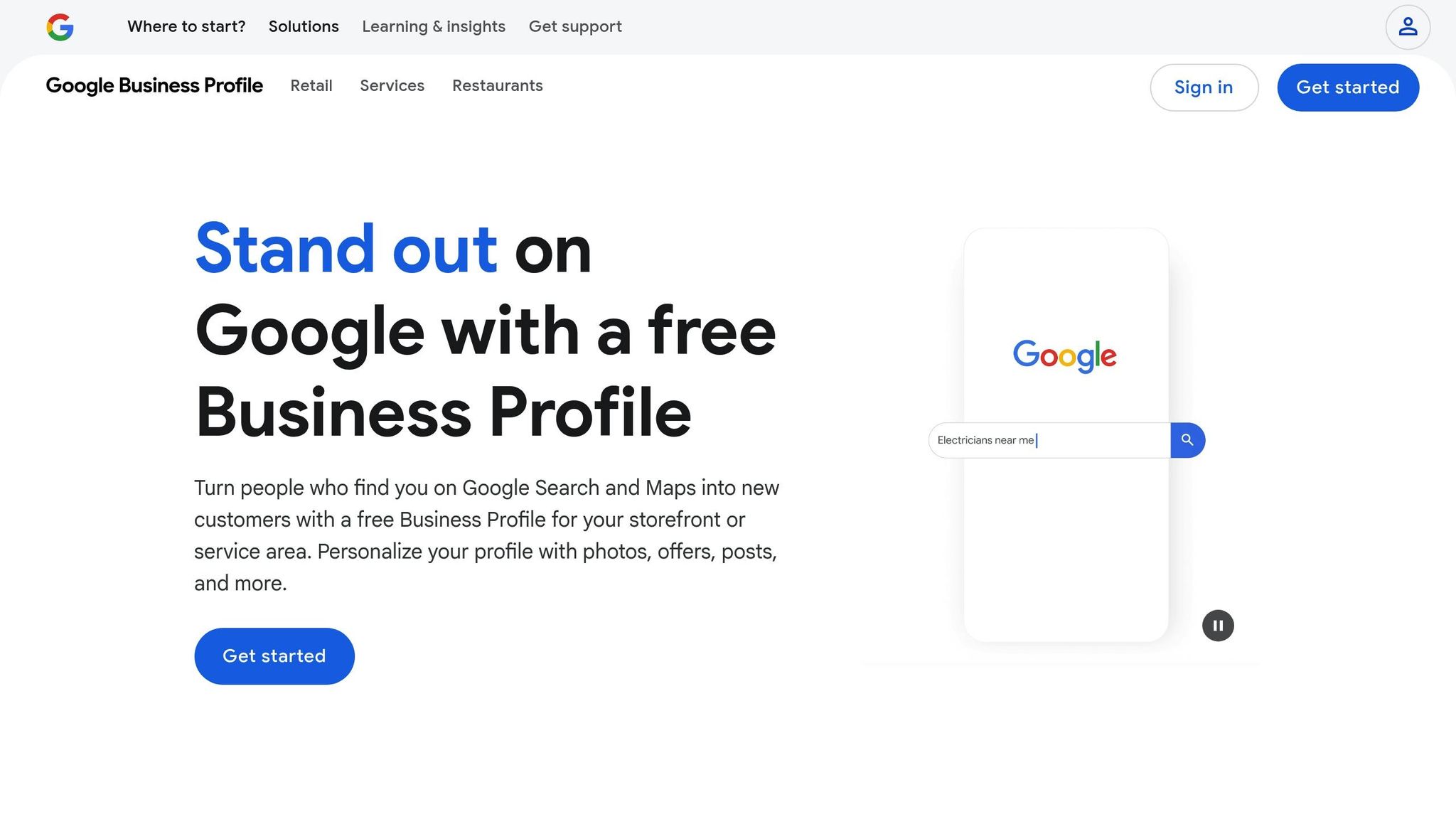
SEO voice in Switzerland: optimize your site for voice searches
Voice SEO in Switzerland: optimize your site for voice searches
1/3 of Swiss internet users use voice assistants, and voice searches already generate billions of francs. With rapid adoption, Switzerland, marked by its linguistic diversity (French, German, Italian, English), offers a unique opportunity for local businesses.
Key points to remember:
- Languages and bilingualism: 66% speak German, 23% French, 8% Italian. Users often switch between two or more languages in their queries.
- Local searches: 76% of users look for local services or businesses via voice.
- Natural queries: Voice searches are formulated in complete sentences, such as: "Where to find an Italian restaurant in Geneva?"
- Mobile impact: 27% of voice searches are done on mobile.
Prioritized optimizations:
- Conversational keywords: Integrate questions like "Where can I find..." or "How to do...".
- Structured data: Use Schema.org to facilitate search engine understanding.
- : Optimize your Google Business profile and tailor your content to regional specificities (e.g., Geneva, Lausanne).
Quick conclusion: Voice search is an unavoidable trend in Switzerland. Adapt your SEO strategies now to capture this growing market.
Trends and behaviors of voice search users in Switzerland
Adoption rate of voice search in Switzerland
In Switzerland, voice search is gaining popularity, following a global trend. Today, approximately 20.5% of users utilize this technology. On mobile, this figure rises to 27%, emphasizing the pivotal role of mobile devices in this adoption. The country's linguistic diversity, with its multiple official languages, also contributes to this growth, as users easily switch between idioms based on their needs.
However, habits vary across linguistic regions, influenced by cultural preferences and specific media usage in each area. This diversity fosters a more natural adoption of voice interfaces.
For young adults, voice search integrates into daily tasks: finding a restaurant, checking schedules, or locating nearby services. Their language proficiency, especially in French and English, enables them to formulate fluid and tailored voice queries to meet their needs.
These trends shape distinct search behaviors, which we delve into further below.
Common voice queries in Switzerland
Voice searches in Switzerland often revolve around practical and immediate needs. For instance, 76% of users use it to locate local businesses or services. Typical queries include:
- "Where to find an Italian restaurant near me?"
- "Opening hours of the nearest pharmacy?"
Bilingualism also plays a significant role in how queries are formulated. It's not uncommon to see language combinations, especially for professional services. For example:
- "SEO agency services Geneva"
- "Digital marketing consultant French Switzerland"
Users often include geographical specifics, such as their canton's name, city, or even neighborhood, to receive location-specific responses.
Another notable characteristic: voice queries are typically phrased as complete and natural sentences. Instead of searching for "dermatologist Geneva price," users ask questions like: "How much does a dermatologist consultation cost in Geneva?". This shift encourages businesses to revise their content by integrating more conversational and spoken language-like expressions.
Optimizing your SEO for voice search from iPhone
Optimizing keywords for bilingual voice search
After analyzing user behaviors, let's focus on adapting keywords to meet the specificities of bilingual voice searches in Switzerland.
Conversational and question-focused keywords
Voice search relies on natural and fluid language. This means prioritizing complete sentences and questions over short keywords. In Switzerland, where users frequently switch between French and English, this approach is particularly relevant.
For example, a user might type "best pizza NYC" in a search engine, but with voice search, they would likely ask a question like "Where is the best pizzeria near me?". Therefore, businesses should include expressions like "How to find...", "Where can I...", and their English equivalents like "How to find..." or "Where can I...".
This method is especially effective for local searches. In Switzerland, 76% of voice searches are related to nearby businesses, and voice searches on mobile are three times more likely to be about local information.
Tools and techniques to identify bilingual keywords
To succeed in a bilingual environment, it's essential to use tools capable of detecting conversational trends in both languages. Here are some useful options:
- AnswerThePublic: This tool highlights frequently asked questions, valuable for understanding linguistic nuances in Switzerland.
- Moz Keyword Explorer: Provides keyword suggestions and search volume data, ideal for targeting natural phrases.
- MarketMuse: Analyzes existing content and suggests adjustments to better meet voice search expectations.
"Search volumes given by any tool is usually just indicative as to its popularity against other keywords to help you work out where to focus. Aside from looking at search volumes and CPC, it's important to speak to your customers and find out what questions they have."
- Joshua Saxon, Content Marketer & SEO Specialist
Creating a list of bilingual keywords
To develop an effective list, start by analyzing user behaviors in both languages. Keywords related to voice search are often longer and reflect natural speech patterns.
Here are the key steps to build this list:
- Identify common questions asked by your audience.
- Study the regions where your audience is located, the languages they speak, and local dialects.
- In French-speaking Switzerland, this involves considering local French nuances while integrating commonly used English terms in professional settings.
| French | English | Monthly search volume (CH) |
|---|---|---|
| création site internet | website development | 2,400 |
| SEO services | – | 1,800 |
| – | 890 |
This analysis highlights specific opportunities in each language. For example, terms like "SEO services" are often searched in English, even by French speakers, due to their common usage in professional environments.
To maximize your impact, focus on conversational keywords and long expressions. Instead of targeting "dentist Geneva," opt for phrases like "Where to find a good dentist in Geneva?" or "How much does a dental consultation cost in Geneva?". Also, consider integrating localized keywords in your structured data to enhance your visibility in local voice searches.
These strategies establish a solid foundation for technical integration, which will be addressed in the next section.
Technical configuration for voice search
Once your bilingual aspects are optimized, it's essential that the technical part enables search engines to easily access this information to meet the specific needs of voice search.
Adding structured data for voice search
Structured data, like those offered by Schema.org, play a key role in the process. They allow search engines to precisely identify content suitable for voice responses. For a , this configuration becomes even more critical.
The speakable tags are particularly useful. They inform search engines which parts of a page are optimal for audio playback via voice synthesis. Additionally, FAQ and HowTo schemas naturally align with questions frequently asked by users during voice searches.
Here's a practical example of implementing speakable structured data for a Swiss site:
<html>
<head>
<title>Services SEO Genève - Optimisation vocale</title>
<meta name="description" content="Découvrez nos services d'optimisation SEO vocal à Genève pour améliorer votre visibilité" />
<script type="application/ld+json">
{
"@context": "https://schema.org/",
"@type": "WebPage",
"name": "SEO Vocal Genève",
"speakable": {
"@type": "SpeakableSpecification",
"xpath": [
"/html/head/title",
"/html/head/meta[@name='description']/@content"
]
},
"url": "https://www.exemple.ch/seo-vocal-geneve"
}
</script>
</head>
<body>
</body>
</html>
Focus on compelling titles and clear summaries to enhance the voice experience.
Multilingual site configuration
For a bilingual site, the technical configuration must address the specific challenges of voice search. For instance, Google Voice Search supports 119 languages, Siri 21 languages, and Alexa eight languages. This places French and English in a favorable position for the Swiss market.
hreflang tags are essential to indicate the language and region of each page. They enable search engines to provide the correct version of content based on user language preferences. However, as explained by Google's John Mueller:
"TBH hreflang is one of the most complex aspects of SEO (if not the most complex one). Feels as easy as a meta-tag, but it gets really hard quickly."
This complexity demands a rigorous approach. For a Swiss site, it's recommended to set up specific hreflang tags for "fr-CH" and "en-CH," considering regional specificities.
Furthermore, large international companies use these tags in combination with other technical elements to effectively localize their content. This includes adapting meta tags (title and description) for each language and using separate URLs for each language version.
Content adaptation goes beyond mere translation. In French-speaking Switzerland, for example, it's crucial to integrate local nuances while retaining commonly used technical terms in English.
"Embracing multilingual SEO isn't just about reaching more people; it's about reaching them in the right way. It's vital to tailor your approach to match cultural nuances and search habits in every market." – Ciaran Connolly, Founder, ProfileTree
Simultaneously, ensure your site is fast and optimized for mobile devices, two essential factors for voice search.
Site speed and mobile optimization
Voice search is primarily used on mobile and requires quick responses, often presented as short snippets. This makes loading speed crucial.
To enhance Swiss search, consider these technical actions:
- Compress multimedia files using modern formats like WebP.
- Reduce the use of heavy plugins.
- Limited unnecessary redirects.
- Adopt modern frameworks like HTML5 and CSS3.
- Combine CSS and JavaScript files to reduce HTTP requests.
- Minify JavaScript code and style sheets.
- Use "defer" and "async" attributes to speed up JavaScript rendering.
The mobile-first approach ensures your site is fully responsive, offering smooth navigation on all screens. This includes a design that optimizes readability and on mobile.
To identify areas for improvement, use tools like the speed test from Pingdom. A strong technical foundation is essential to prepare your site for local voice search, the next step in your voice search strategy in Switzerland.
Local SEO for voice search in Switzerland
Local voice search has become an essential lever for Swiss businesses. According to BrightLocal, 58% of users used voice search to find a local business in 2018, and 46% use it daily to connect with local shops. This evolution demands a strategy tailored to Swiss specificities. Once technical aspects are in place, focus on these local optimizations to capture voice searches.
Optimizing your Google Business profile

A well-maintained profile is essential to maximize your visibility in local voice search. According to Geolid, 90% of visits to these profiles come from mobile devices, with nearly equal distribution between Google Search (51.81%) and Google Maps (48.19%). Moreover, the click-through rate reaches 10.94%, meaning one in ten visits generates a concrete interaction.
To make the most of this channel, ensure each section is filled with accurate information in French and English. Integrate local keywords in your business description, using natural and conversational language suitable for voice searches.
Data shows that 40.39% of clicks are for directions, 30.13% lead to the website, and 29.48% trigger phone calls. This underscores the importance of having accurate and accessible contact information.
Regularly post news, offers, and events via Google Posts to signal to Google that your business is active. Encourage satisfied customers to leave reviews and respond promptly to comments to enhance your engagement.
Lastly, do not overlook the Questions-Answers section. Monitor and respond to user questions, as these answers can be picked up by voice assistants.
Formatting Swiss business information
Clear and compliant formatting to Swiss standards enhances voice assistant understanding and improves the user experience.
| Element | French format (CH) | English format (CH) |
|---|---|---|
| Currency | CHF 1,234.50 | CHF 1,234.50 |
| Date | 14.05.2025 | 14.05.2025 |
| Time | 14h30 | 14:30 |
| Measurements | Metric system | Metric system |
| Temperature | °C | °C |